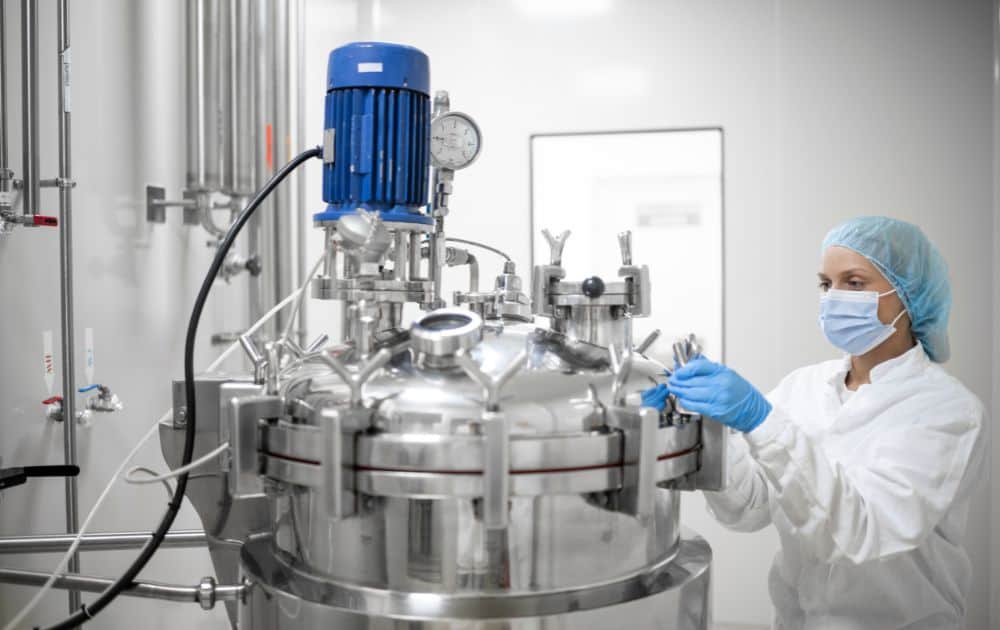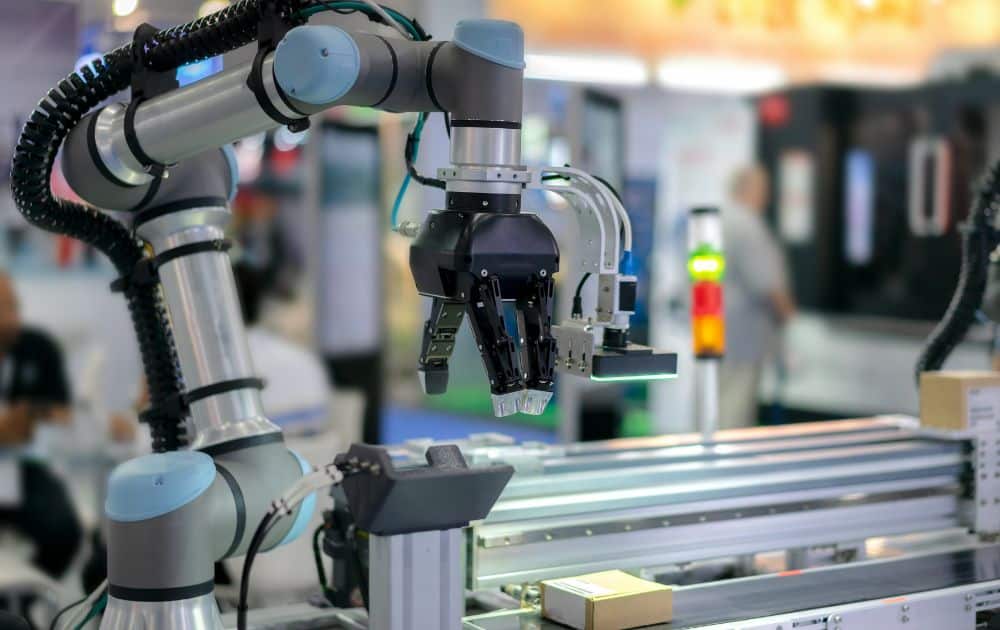Information Technology (IT) has transformed the way manufacturing processes are designed, managed, and optimized. From streamlining operations to improving product quality, IT service providers offer a wide range of benefits for manufacturers.
One of the key advantages of IT in manufacturing is the ability to collect, analyze, and leverage data. By implementing systems that capture real-time data from various sources, manufacturers can gain valuable insights into their processes
Additionally, IT plays a crucial role in enabling automation and integration in the manufacturing environment. Automation of repetitive tasks not only reduces human error but also allows employees to focus on more strategic activities.

Overview of Emerging Trends
The manufacturing industry is witnessing the emergence of several IT trends that have the potential to revolutionize the way businesses operate. Here are some of the key trends that are shaping the modern manufacturing landscape:
- Industry 4.0 and Smart Manufacturing: The integration of the Internet of Things (IoT) and automation technologies has given rise to the concept of Industry 4.0 and smart manufacturing. By connecting machines, devices, and sensors, manufacturers can create intelligent systems that communicate and collaborate, leading to increased efficiency.
- Cloud Computing in Manufacturing: Cloud computing offers manufacturers the ability to store and access data and applications remotely. The advantages of cloud computing include scalability, cost-effectiveness, and enhanced collaboration.
- Big Data Analytics for Manufacturing: The vast amount of data generated in the manufacturing process can be harnessed and analyzed using big data analytics techniques. By leveraging advanced analytics tools, manufacturers can gain insights into production trends, optimize supply chains, and improve quality control.
- Cybersecurity in Manufacturing IT: With increased digitization and connectivity, the manufacturing industry faces a growing number of cybersecurity risks. Protecting sensitive data, intellectual property, and critical infrastructure is of utmost importance.
- AI and Machine Learning in Manufacturing: Artificial Intelligence (AI) and machine learning technologies have the potential to revolutionize manufacturing processes further. From predictive maintenance to intelligent supply chain management, AI and machine learning can drive innovation in the industry.
Industry 4.0 and Smart Manufacturing
As the manufacturing industry continues to evolve, the integration of Information Technology (IT) has become increasingly vital. One of the key trends driving this transformation is Industry 4.0. This revolution is characterized by the convergence of digital technologies and automation, paving the way for smart manufacturing.
Integration of IoT and Automation
A core component of Industry 4.0 is the integration of the Internet of Things (IoT) and automation into manufacturing processes. IoT refers to the network of interconnected devices that collect and exchange data. In the context of manufacturing, IoT enables machines, sensors, and other devices to share information in real time.
By leveraging IoT technologies, manufacturers can achieve a higher level of automation and connectivity across their operations. This allows for improved monitoring, control, and optimization of various processes, including production, inventory management, and supply chain logistics.
Benefits of Smart Manufacturing
The adoption of smart manufacturing practices brings numerous benefits to the manufacturing industry. Some key advantages include:
- Increased Efficiency: Smart manufacturing enables streamlined and optimized processes, leading to increased efficiency and productivity.
- Improved Quality and Flexibility: With IoT-enabled sensors and data analytics, manufacturers can closely monitor production parameters and make real-time adjustments to ensure consistent quality.
- Enhanced Supply Chain Management: By integrating IoT and automation technologies, manufacturers can improve supply chain visibility and traceability.
- Cost Savings: Smart manufacturing practices can lead to cost savings by reducing downtime, minimizing waste, and optimizing resource utilization.
- Improved Safety: IoT-enabled sensors can monitor workplace conditions, detect safety hazards, and alert workers in real time.

Cloud Computing in Manufacturing
Cloud computing has emerged as a game-changer in the manufacturing industry, revolutionizing the way businesses manage and store their data. This section explores the advantages of cloud computing and considerations for adopting cloud solutions in the manufacturing sector.
Advantages of Cloud Computing
Cloud computing offers numerous benefits to manufacturers, enabling them to enhance efficiency, flexibility, and scalability in their operations. Here are some key advantages of utilizing cloud computing in manufacturing:
- Cost Savings: Cloud computing eliminates the need for significant upfront investments in hardware and infrastructure. Manufacturers can leverage cloud services on a pay-as-you-go basis, reducing overall IT costs.
- Data Accessibility: Cloud solutions enable manufacturers to access their data from anywhere, at any time, using any device with an internet connection. This flexibility promotes collaboration among teams.
- Scalability: Cloud computing allows manufacturers to easily scale their IT resources up or down based on their business needs. This scalability is particularly valuable for manufacturers experiencing fluctuating demand.
- Data Security: Cloud service providers employ robust security measures to protect manufacturers' data. These measures typically include encryption, regular backups, and disaster recovery plans.
- Automatic Updates and Maintenance: Cloud solutions often handle software updates and maintenance tasks automatically. This frees manufacturers from the burden of managing these repetitive activities.
Considerations for Adopting Cloud Solutions
While cloud computing offers significant advantages, manufacturers should carefully consider certain factors before adopting cloud solutions. Here are some key considerations:
- Data Privacy and Compliance: Manufacturers must ensure that their chosen cloud provider adheres to relevant data privacy regulations and industry-specific compliance standards. This is particularly important for manufacturers handling sensitive customer data or proprietary information.
- Reliability and Uptime: Manufacturers should evaluate the track record and reputation of potential cloud service providers regarding reliability and uptime. Downtime can have detrimental effects on production schedules and overall business operations.
- Integration with Existing Systems: Manufacturers should assess the compatibility and integration capabilities of cloud solutions with their existing IT systems. Seamless integration is crucial to avoid disruptions and ensure a smooth transition.
- Vendor Lock-In: Manufacturers should be cautious of potential vendor lock-in, where it becomes difficult or costly to switch cloud providers. Evaluating the interoperability and portability of cloud solutions can mitigate this risk.
- Data Backup and Recovery: While cloud providers typically have backup mechanisms in place, manufacturers should have an understanding of these processes and ensure they align with their specific requirements.

Big Data Analytics for Manufacturing
The abundance of data generated throughout the production process presents both challenges and opportunities. Big data analytics has emerged as a powerful tool for manufacturers to leverage data for valuable insights and drive informed decision-making.
Leveraging Data for Insights
Manufacturers collect vast amounts of data from various sources. However, the true value lies in transforming this data into actionable insights. Big data analytics enables manufacturers to analyze and interpret this data to uncover patterns, trends, and correlations that can drive operational efficiency.
By leveraging data for insights, manufacturers can gain a deeper understanding of their production processes, identify bottlenecks, and optimize workflows. For example, analyzing sensor data from machinery can provide real-time visibility into equipment performance, enabling proactive maintenance and minimizing downtime.
Applications of Big Data Analytics
Big data analytics has a wide range of applications within the manufacturing industry. Here are a few key areas where it is making a significant impact:
- Predictive Maintenance: By analyzing equipment sensor data, manufacturers can detect early warning signs of potential equipment failures and schedule maintenance before breakdowns occur.
- Quality Control: Big data analytics allows manufacturers to monitor and analyze data at each stage of the production process, enabling real-time quality control. By identifying patterns and anomalies, manufacturers can detect defects and take corrective actions promptly.
- Supply Chain Optimization: Analyzing data from the supply chain, including inventory levels, transportation routes, and demand patterns, helps manufacturers optimize their supply chain operations.
- Demand Forecasting: By analyzing historical sales data and market trends, manufacturers can develop accurate demand forecasts. This helps them optimize production planning, manage inventory levels, and align their operations with market demand, reducing the risk of overstocking.
- Energy Optimization: Big data analytics enables manufacturers to monitor and analyze energy consumption data in real time. By identifying energy inefficiencies and patterns, manufacturers can implement energy-saving initiatives and reduce their environmental footprint.
Cybersecurity in Manufacturing IT
As manufacturing becomes increasingly connected, the importance of cybersecurity in manufacturing IT cannot be overstated. With the rise of Industry 4.0 and the integration of advanced technologies, businesses must be vigilant in protecting their systems and data from potential risks and threats.
Risks and Threats in Manufacturing
Manufacturing organizations face a range of cybersecurity risks and threats that can have severe consequences if not addressed effectively. Some of the common risks and threats include:
- Data Breaches: Manufacturing companies store vast amounts of sensitive data, including customer information and intellectual property. A data breach can lead to significant financial loss, reputational damage, and legal implications.
- Ransomware Attacks: Ransomware attacks have become increasingly prevalent, with cybercriminals encrypting critical data and demanding a ransom for its release. These attacks can disrupt operations and cause substantial financial harm.
- Supply Chain Vulnerabilities: Each link in the supply chain represents a potential point of vulnerability that can be exploited by cybercriminals to gain unauthorized access to systems or introduce malicious software.
- Intellectual Property Theft: Intellectual property theft is a significant concern for manufacturing companies. Cybercriminals may attempt to steal valuable designs or research data, compromising a company's competitive advantage.
Strategies for Enhancing Cybersecurity
To enhance cybersecurity in manufacturing IT, businesses should consider implementing the following strategies:
- Risk Assessment and Management: Conducting a comprehensive risk assessment helps identify vulnerabilities and prioritize cybersecurity measures. Regular risk assessments should be performed to keep up with evolving threats and technologies.
- Employee Training and Awareness: Educating employees about cybersecurity best practices is critical. Training programs should cover topics such as password hygiene, phishing awareness, and social engineering techniques to ensure that employees are equipped to respond to potential threats.
- Secure Network Infrastructure: Manufacturing organizations should implement secure network infrastructure. Regular network monitoring and vulnerability assessments can help identify and address potential weaknesses.
- Data Encryption and Access Controls: Implementing access controls helps protect valuable information from unauthorized access. Role-based access controls should be implemented to ensure that employees only have access to the information necessary for their roles.
- Incident Response and Business Continuity Planning: Developing an incident response plan and business continuity strategy is crucial. This enables organizations to respond effectively to security incidents.

AI and Machine Learning in Manufacturing
As the manufacturing industry continues to evolve, there is a growing emphasis on the integration of AI and ML technologies. These cutting-edge advancements have the potential to revolutionize manufacturing processes, leading to increased efficiency, productivity, and cost-effectiveness.
Role of AI and Machine Learning
AI and machine learning technologies play a pivotal role in manufacturing by enabling systems to learn from data and make intelligent decisions. Through advanced algorithms and data analysis, AI and ML can automate complex tasks and identify anomalies that may go unnoticed by human operators.
One of the key applications of AI and ML in manufacturing is predictive maintenance. By analyzing real-time data from sensors and equipment, these technologies can identify indicators of potential equipment failure. This allows manufacturers to proactively address maintenance issues and improve overall operational efficiency.
Furthermore, AI and ML can enhance quality control processes by analyzing large volumes of data to identify defects or inconsistencies in manufacturing processes. This enables manufacturers to take corrective actions in real time, ensuring that products meet or exceed customer expectations.
Potential Impact on Manufacturing Processes
The integration of AI and ML technologies has the potential to revolutionize manufacturing processes in several ways:
- Optimized Production Planning: AI and ML algorithms can analyze historical data, market trends, and customer demand to generate accurate production forecasts. This helps manufacturers optimize production schedules, reduce waste, and ensure timely delivery of products.
- Intelligent Supply Chain Management: AI and ML can improve supply chain management by analyzing data from various sources, such as inventory levels, transportation routes, and supplier performance. This enables manufacturers to make informed decisions, streamline operations, and reduce costs.
- Enhanced Product Design: AI and ML algorithms can analyze customer feedback, market trends, and product performance data to optimize product design. By identifying patterns and preferences, manufacturers can create products that better meet the needs and expectations of their target audience.
- Real-time Quality Control: AI and ML technologies can monitor production processes in real-time, identifying deviations or anomalies that may impact product quality. By alerting operators to potential issues, manufacturers can take immediate action to maintain consistent product quality.
- Improved Workplace Safety: AI and ML can be utilized to enhance workplace safety by analyzing data from sensors and cameras to identify potential hazards or unsafe conditions. This allows manufacturers to implement preventive measures and reduce the risk of accidents.
As AI and ML continue to advance, their impact on the manufacturing industry is expected to grow. However, it is important for manufacturers to consider the ethical implications, data privacy concerns, and the need for human oversight when implementing AI and ML technologies.
Embrace the Future with LK Technology in Cincinnati
These are just a few of the IT trends shaping the future of manufacturing. To stay ahead of the curve, manufacturers need a reliable IT partner who understands the unique challenges and opportunities presented by Industry 4.0.
LK Technology is a leading provider of expert IT services in Cincinnati, Ohio. Our team of experienced professionals offers a comprehensive suite of solutions designed to help manufacturers leverage technology to achieve their business goals.
Contact LK Technology today and schedule a consultation to discuss how we can help your manufacturing business thrive in the digital age!


